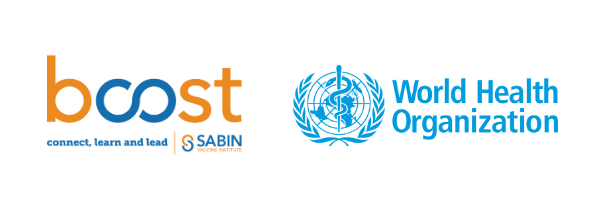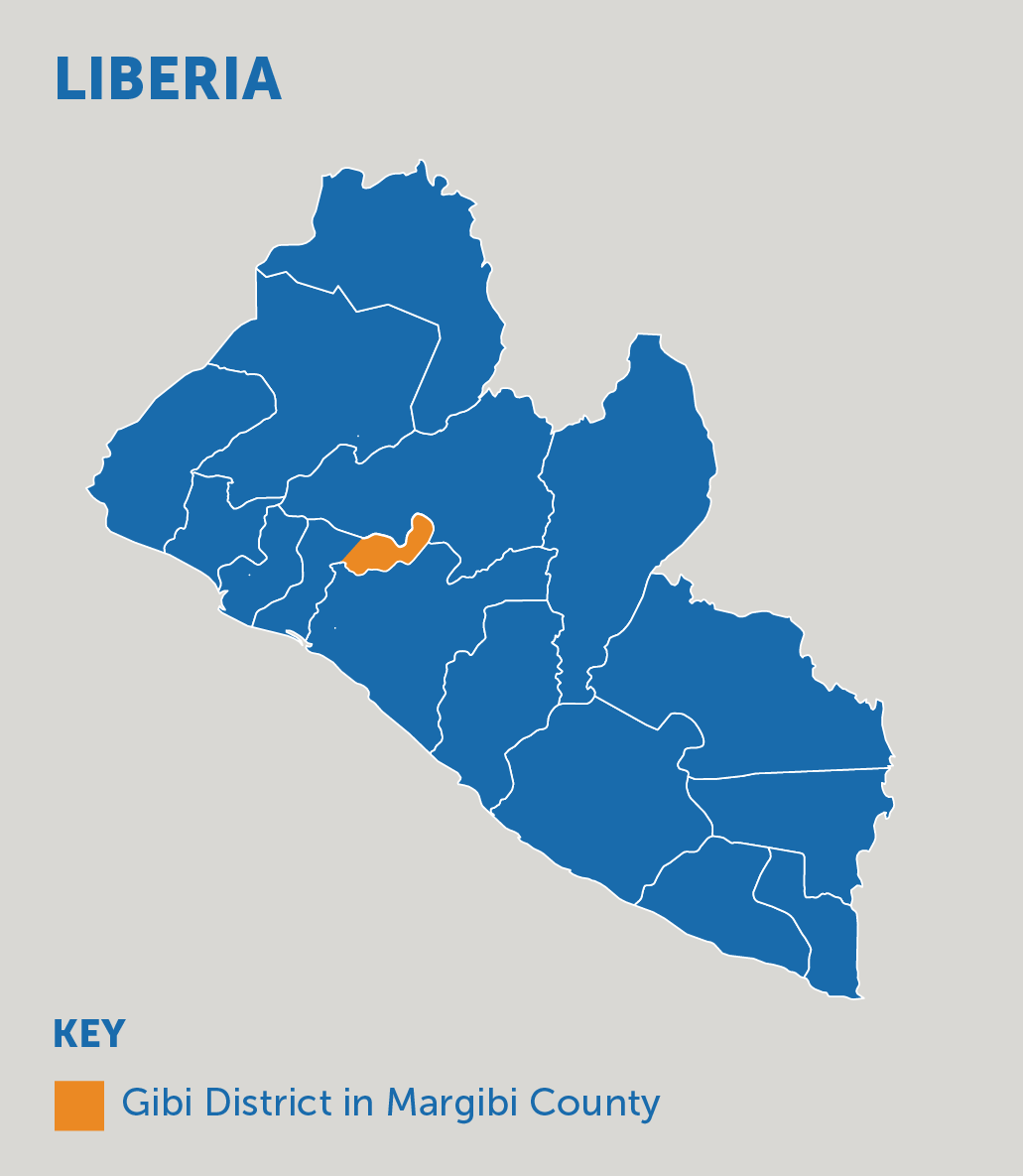Knowledge is Power: Empowering Community Members & Healthcare Workers in Liberia
In May 2022, Sabin’s Boost Community and the World Health Organization (WHO) launched the first cohort of the "COVID-19 Recovery for Routine Immunization Programs Fellowship". The aim of this program was to strengthen the capacity of national and sub-national immunization professionals to plan and implement immunization programming during the COVID-19 recovery period, with the ultimate goal of reversing the declining rates of immunization coverage. After an intensive live engagement series, Fellows were tasked with drafting their own strategic proposal for implementation or case study for publication. This series of Bright Spots share Fellows' key learnings and takeaways from the program.
Ummu Ainane Tunis-Paasewe has witnessed firsthand the result of missed childhood vaccination as the Resource Mobilization Officer at the Ministry of Health’s Expanded Program on Immunization (EPI) in Liberia. Issues with low routine immunization coverage of children in Liberia has challenged immunization professionals for many years, even prior to the introduction of the COVID-19 vaccine. Low coverage of the Pentavalent vaccine, in particular, leaves “zero-dose children” – those who have not received any lifesaving vaccinations – without protection from life-threatening diseases.
Through the 2022 COVID-19 Recovery for Routine Immunization Programs Fellowship, Ummu recognized the opportunity she craved to address issues with childhood vaccination. The Fellowship, offered by the Sabin Vaccine Institute’s Boost Community (Boost) and the World Health Organization (WHO), provided an opportunity to strengthen the capacity of immunization professionals, like Ummu, to recover and bolster immunization programs in their countries.
When beginning the Fellowship, Ummu felt she could make an impact on the ground with her position on the EPI communications team. From there, Ummu said, “The challenge was how do I make this unique? How do I make this innovative?” Ummu’s project aimed to create awareness and increase routine immunization coverage of the Pentavalent vaccine to 90%, per WHO’s recommendations, in two clinics with low Pentavalent coverage in Gibi District, Margibi County. Ummu said of the Fellowship, “It was unique and something I appreciated because it didn’t just teach me these new skills, but it allowed me to go out there and implement these skills that were taught.”
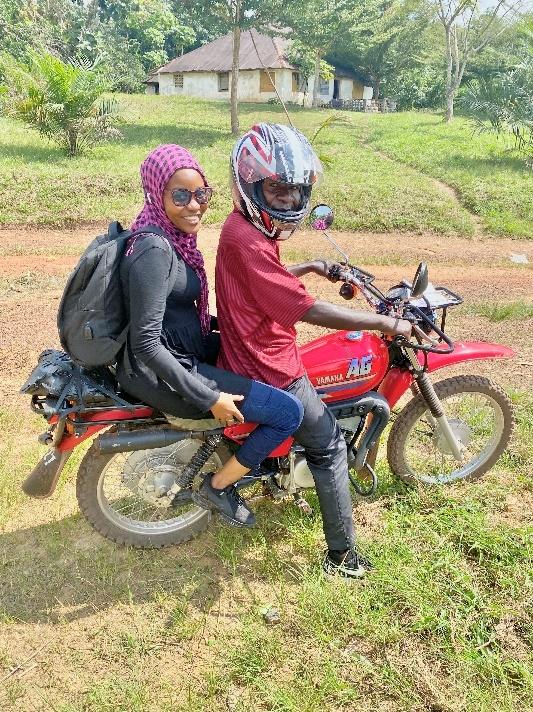
Engaging Community Health Assistants
Ummu and her team held an inception meeting with the health facilities’ authorities and the Health Facility Development Committee members to explain the project, conduct training, and provide educational visual aids that described Liberia’s routine vaccines and their benefits, including the diseases they prevent and their dosing schedules. They also brought Community Health Assistants (CHAs) on board and provided them training with clear directions as to their role in the program: search and do outreach to identify and refer or vaccinate zero-dose and missed children, with aid from Community Health Services Supervisors.
In Ummu’s view, this training was one of the biggest impacts of her project. Ummu said, “They had never been engaged with routine immunization before. And it wasn’t just about talking to them, it was about showing them. They could not appreciate that information more because this was their first time hearing it and now they felt a part of routine immunization.” Ummu believes that improving health worker knowledge on vaccination translates into increased trust of health workers by the community, as witnessed in the uptick in immunization coverage following implementation of her proposal.
“Knowledge they say is power in our local setting. Once you are engaged by a community member who doesn’t know about this service and you are able to provide sufficient information about that service, that person will not just trust you as the health worker, but they’ll be convinced enough to take up that service.” ~ Ummu Ainane Tunis-Paasewe
Overcoming Barriers
The team working with Ummu to implement the project had to be nimble in the face of challenges. Ummu said, “I live in a resource constrained country, so challenge is all we hear all day.” For example, the Farmington River borders both Margibi County and Grand Bassa County, and it holds a large and underserved population that is hard to reach from either county: there is no safe way to cross the river to provide health services. However, with funding from the Fellowship, the team was able to purchase life vests for Yarnwullie Health Clinic’s outreach team to cross the river and get to this population.
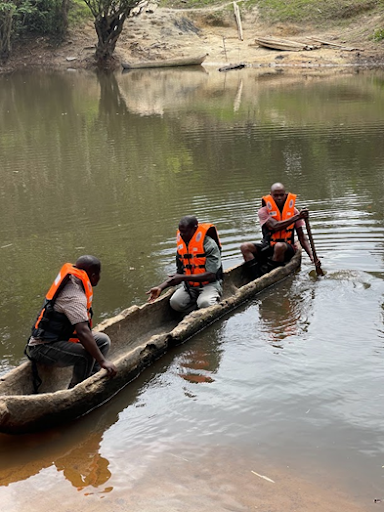
Despite these challenges, the team was able to visit over 1,200 households and see more than 800 children under two years of age. Additionally, they were able to fully train 20 CHAs and raise awareness of routine immunization among community stakeholders. Through Ummu and her team’s new efforts, combined with existing outreach and fixed efforts, 236 children were vaccinated with the Pentavalent vaccine; 140 children with the BCG vaccine; and 155 with the Measles vaccine, for a total of 531 children vaccinated in the Wolola and Yarnwullie clinics.
Final Results
1,200 households visited
800 children under the age of two seen
20 Community Health Assistants trained
531 children vaccinated in the Wolola and Yarnwullie clinics
Using a Community-Centered Approach
Ummu noted that community engagement was key in the success of her project, especially using community health stakeholders to identify and vaccinate zero-dose and missed children, even in the face of limited resources. Engaging other community members, such as religious and community leaders, was also essential to encourage people in the community to take ownership of their health and demand health services, especially immunization, as a right.
Furthermore, Ummu created a community-based routine vaccination tracking form for CHAs and their supervisors, including indicators for zero-dose and immunization drop out. Ummu said, “You need to really measure your impact. You need to be able to link the health facility to the community, because most times when it comes to immunization, the impact that everyone looks for is the increments in coverage.”
Since the Fellowship, Ummu has transitioned to a new role as an Immunization Consultant at UNICEF Liberia, bringing the knowledge she has gained to address new challenges. Reflecting on her experience with the Fellowship, Ummu stressed the importance of continuing to strengthen the capacity of all experienced and incoming immunization professionals to implement similar projects.
“The work area is in rollover – you come in, you play a part, you move to the next level. We are now tasked to inform those of our colleagues coming after us.” ~ Ummu Ainane Tunis-Paasewe
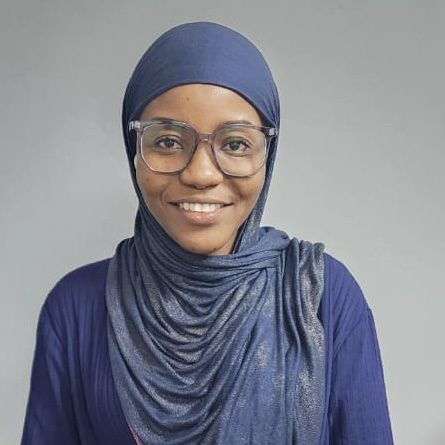
2022 Fellow & Contributor
This story was shared by Ummu Ainane Tunis-Paasewe, an Immunization Specialist (Consultant) at the UNICEF Liberia Country Office. She underwent professional training with the President’s Young Professionals Program. She was accepted into the sixth cohort of Liberia’s Field Epidemiology Training Program where she graduated with excellence and was requested to serve as a Mentor for the next cohort of the training. Most recently, she has been recruited to serve a three-month consultancy at UNICEF’s Country Office and won an award to study Master of Arts in Health Promotion at the Nui Galway University in Ireland.
